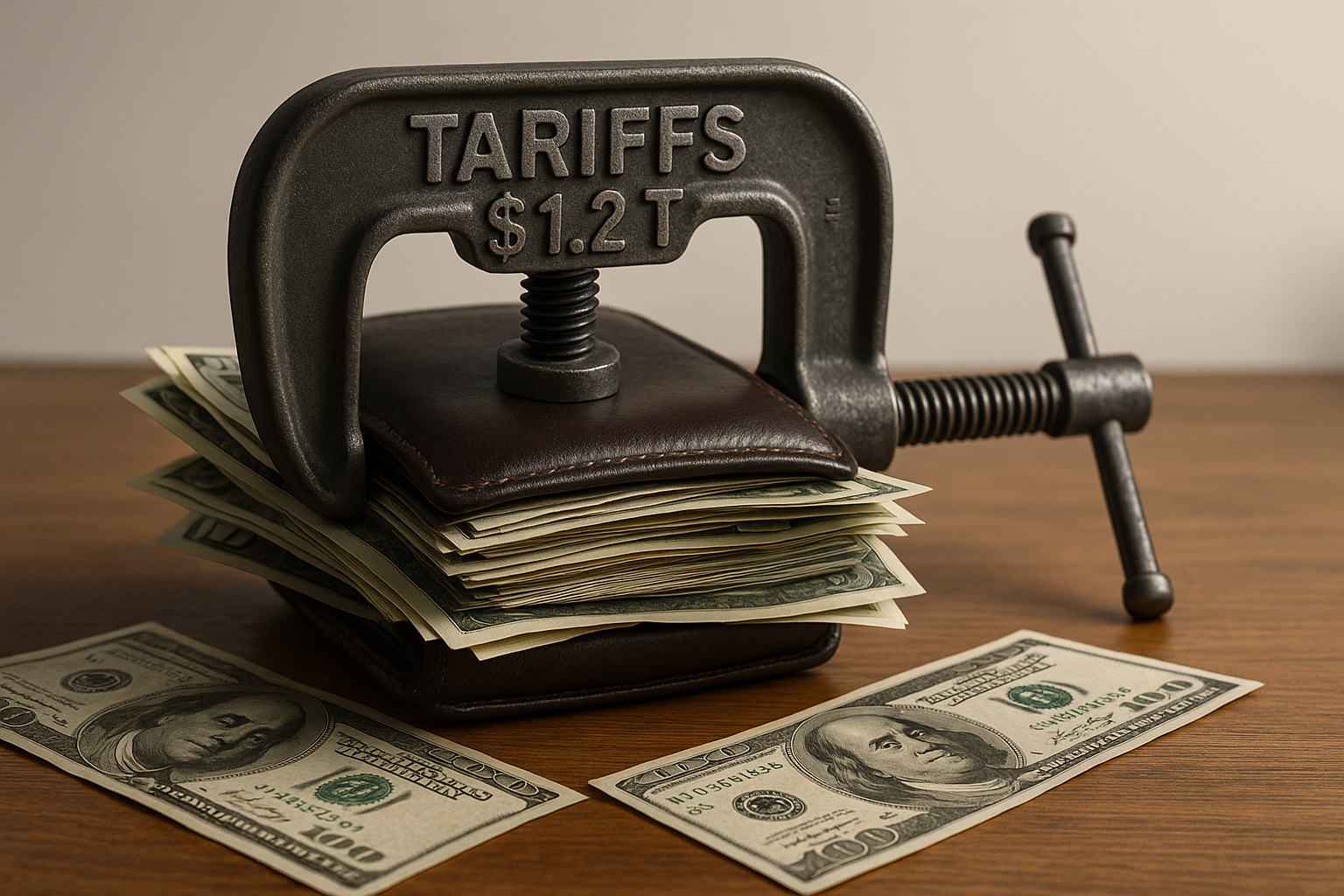America's bill for the ongoing trade wars is landing with a thud that might just shake your bank account. Fresh research from S&P Global shows President Trump's tariff policies are on track to wallop businesses with costs exceeding $1.2 trillion this year. And—you guessed it—most of that massive tab is headed straight for consumer pocketbooks.
The study dropped Thursday like an unwelcome forecast. Companies that weren't budgeting for this economic storm on January 1st are now scrambling to figure out who's absorbing what. According to S&P's army of 15,000 analysts (who track some 9,000 companies), roughly two-thirds of these jaw-dropping costs will ultimately be passed along to regular folks like you and me. Businesses will reluctantly swallow the rest.
Look, if you've spent even five minutes thinking about tariff mechanics, none of this should shock you. Despite the persistent political mythology that "China is paying," tariffs function as supply chain taxes, plain and simple. The money flows one direction—from consumers to businesses to government coffers—not from foreign exporters directly to Uncle Sam's piggy bank.
I've been tracking trade policy impacts since the first round of steel tariffs, and I find the "tariff waterfall" concept particularly useful. Costs don't just sit in one place; they cascade downward through production chains with gathering momentum. That initial 25% tariff on steel? By the time it reaches store shelves, each link in the chain—fabricator, manufacturer, distributor, retailer—has added their markup to the increased base cost. What started as 25% might hit consumers as a 40% price hike.
And that's just the direct hit.
S&P's researchers highlight something many commentators miss: the multiplier effect. Companies aren't merely paying more for goods; they're hemorrhaging money on supply chain rerouting, inventory buffers (gotta keep extra stock as insurance against disruptions), and the administrative nightmare of navigating trade compliance. It's death by a thousand papercuts—with each cut costing millions.
The timing couldn't be worse. We're already wrestling with stubborn inflation worries, and now we're effectively imposing what amounts to a massive consumption tax. It's like... well, it's like trying to diet while someone keeps restocking your freezer with ice cream.
What fascinates me most? Corporate America's rhetorical gymnastics. For years, executives have tiptoed around the T-word on earnings calls. Instead of "tariffs," they've muttered vaguely about "input cost pressures" and "supply chain optimization initiatives." (Translation: "Stuff costs more and we're scrambling.") Now, with $1.2 trillion coming due, that linguistic dance is getting harder to maintain.
There are serious, legitimate debates about trade policy toward China—I've moderated enough panels on IP theft and market access to know the complexity here. But the fairy tale that tariffs are some magical money tree where foreign countries pay while Americans benefit? That's always been economic fantasy. S&P Global is just putting numbers to what economists have been shouting into the void.
Historically speaking, tariffs rank among civilization's oldest taxes. Ancient Rome had 'em. Medieval kingdoms loved 'em. They're also among the most thoroughly studied economic policies, with effects documented across centuries. Yet somehow we've convinced ourselves that these particular tariffs would defy economic gravity because... reasons?
The real question—and I've been asking retail executives this exact thing—is how consumers respond to the coming sticker shock. Will they pull back spending? Shift to cheaper alternatives? Grudgingly accept higher prices while muttering about inflation? The distribution of these reactions will determine whether we're looking at a mild economic speed bump or something more unsettling.
That $1.2 trillion figure isn't chump change. S&P calls it "likely a conservative estimate," by the way. It represents roughly 5% of American GDP—a massive economic drag by any measure. Even if only two-thirds hits consumers directly, we're essentially implementing an unofficial 3% national sales tax that nobody voted for.
Meanwhile, businesses are playing an expensive global shell game—shifting production locations, reformulating products, and hunting desperately for tariff loopholes. This has spawned an entire shadow economy of tariff-avoidance consultants and trade lawyers. Job creation, I suppose, though not the kind anyone campaigned on.
Next time someone tells you tariffs are making America great again, maybe check your receipts. That bill's coming due—and brother, it's a doozy.
